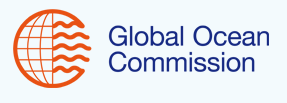The Global Oceans Commission has released a report, ‘From Decline to Recovery: A Rescue Package for the Global Ocean,' which makes eight proposals for actions to restore and protect natural capital and services.
The report highlights “the fundamental mismatch” between the value of the high seas to humanity and the current governance of the high seas, stressing the need for a global blueprint for action to move towards recovery and regeneration.
 23 June 2014: The Global Oceans Commission has released a report, titled ‘From Decline to Recovery: A Rescue Package for the Global Ocean,’ which makes eight proposals for actions to restore and protect natural capital and services. The report highlights “the fundamental mismatch” between the value of the high seas to humanity and the current governance of the high seas, stressing the need for a global blueprint for action to move towards recovery and regeneration.
23 June 2014: The Global Oceans Commission has released a report, titled ‘From Decline to Recovery: A Rescue Package for the Global Ocean,’ which makes eight proposals for actions to restore and protect natural capital and services. The report highlights “the fundamental mismatch” between the value of the high seas to humanity and the current governance of the high seas, stressing the need for a global blueprint for action to move towards recovery and regeneration.
The current governance system “is no longer fit for purpose to ensure long-term sustainability or equity in resource allocation” nor for creating conditions to maximize economic benefits from the high seas, according to the report. It highlights three challenges with the international governance regime for the high seas. First, it states that the UN Convention on the Law of the Sea (UNCLOS) is sectoral and creates siloed regulation of industries and activities with little interplay among sectors. Second, the report argues that relying on flag States for enforcement is not effective when States are unable or unwilling to take responsibility for the vessels under their flag. Third, the report highlights changing ocean governance since the negotiation of UNCLOS, noting, inter alia, increasing attention to the needs of small island developing States and the growing role of civil society and the private sector.
The report identifies five drivers of ocean decline, including: rising demand for resources; technological advances; decline of fish stocks; climate change, biodiversity and habitat loss; and weak high seas governance.
The report proposes eight drivers of recovery: creating a high seas regeneration zone; monitoring progress towards a healthy ocean through a global ocean accountability report; establishing binding international safety standards and liability; keeping plastic out of the ocean; closing seas, ports and markets to illegal, unreported and unregulated (IUU) fishing; ending harmful high seas subsidies; promoting care and recovery in the high seas; and putting a healthy living ocean at the heart of development through a Sustainable Development Goal (SDG) on the ocean. Each of these eight proposals is elaborated upon in separate chapters of the report.
The Global Oceans Commission is mandated to formulate politically and technically feasible short, medium and long-term recommendations to address key issues facing the high seas. The Pew Charitable Trusts, Adessium Foundation, Oceans 5 and the Swire Group Charitable Trusts support the Commission. [Publication: From Decline to Recovery: A Rescue Package for the Global Ocean] [Global Oceans Commission Website] [International Maritime Organization (IMO) Press Release]